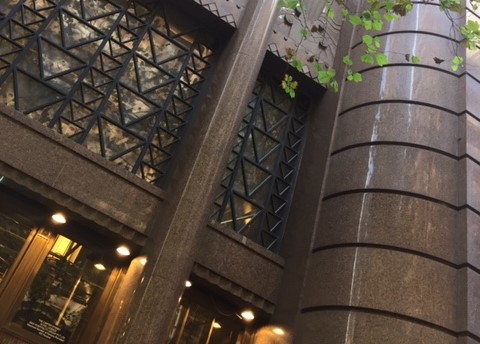The Australian parliament’s response to a 2016 recommendation to introduce law to counter money laundering and terrorist financing – by way of a Bill introduced into parliament in February 2022 requiring the government to introduce a Bill into parliament by 30 September 2022 – has received a major set-back.
The Senate Selection of Bills Committee has deferred consideration of the Anti-Money Laundering and Counter-Terrorism Financing Amendment (Increased Financial Transparency) Bill 2022 to its next meeting.[1]
The background
A beneficial ownership register
Back in November 2016, I reported on the government’s proposal for a beneficial ownership register for companies, being a register of
“the natural person(s) who ultimately owns or controls a customer and/or the natural person on whose behalf a transaction is being conducted (…)”.
Such a register would counter
“longstanding concerns that, when companies, land or real property are bought through shell companies, so disguising their true ownership, the resulting lack of transparency may allow corruption or crime to flourish”.
See Beneficial ownership of companies, and access to ASIC data | Murrays Legal.
Also see What has happened to the proposed beneficial ownership of shares register? | Murrays Legal
A major report on our Anti-Money Laundering and Counter Terrorism Financing Act 2006 had been tabled in parliament in April 2016, commenting on the limited information available about the true ownership of Australian companies compared with other countries. This was in the context of anti-money laundering and counter-terrorism financing (AML/CTF) issues generally.
Director Identity Number
Earlier, in 2015, a Senate committee on the construction industry had likewise recommended that the government establish a register of beneficial ownership but coupled with a Director Identification Number (DIN), that is a numbered register of directors’ names. A DIN had already been recommended by the Productivity Commission in 2015.
Open access to ASIC data
That 2015 Senate Committee went further, saying that much corporate data is only available from ASIC for a fee. It recommended that ASIC provide access to its company register free of charge, in the same way that company records are accessible free of charge through the UK Companies House.
Some six years later
There is now introduced into parliament the Anti-Money Laundering and Counter-Terrorism Financing Amendment (Increased Financial Transparency) Bill 2022.
It would not establish a public register of the ultimate beneficial ownership (UBO) of companies; rather, it would require the government to draft and introduce legislation to this effect by 30 September 2022. That is, legislation to establish a public register of the UBO of companies and foreign companies registered in Australia, and of other legal persons and legal arrangements as the Minister considers appropriate, and which may include foundations and trusts.
Significantly, it would also require legislation to include certain DNFBPs[2] within those who must comply with AML/CTF laws, including lawyers, conveyancers, accountants, high-value dealers, real estate agents, and trust and company service providers.
Financial Action Task Force (FATF)
Apparently the passage of this legislation would improve Australia’s compliance with the numerous recommendations of the international Financial Action Task Force that establish the International Standards on Combating Money Laundering and the Financing of Terrorism & Proliferation.
This law would reduce the risk that the Australian financial system has been exposed to over the last six years and more of being used for money laundering and terrorist financing.
Likewise, it was reduce the risk caused by the delay in regulating those DNFBPs, which has generated a significant gap in Australia’s AML/CTF regulatory regime, providing opportunities for criminals to misuse DNFBP services to launder illicit funds.
The delay in the UBO may have resulted in “gains for criminals and financial losses to the Australian economy” as well as other consequences.
14 recommendations remain non-compliant or partially compliant by Australia
In 2018, in a third follow up report on Australia’s compliance, FATF said that
“overall, Australia has made some progress in addressing the technical compliance deficiencies identified …. However, 14 Recommendations remain non-compliant or partially compliant”.
The failure to regulate lawyers and real estate agents was of particular concern, more so now given the high levels of property price inflation in Australia at present.
Open access to ASIC / ATO data
Oddly, there is no mention by the government of this 2015 recommendation from the Senate and from many others.
The government will be aware of UNCITRAL’s 2019 Legislative Guide on Key Principles of a Business Registry to which Australia was a party. Recommendation 42 is that basic information contained in any business registry should be available to the public free of charge. Information services that require greater processing may be provided for a fee that reflects the cost of providing the information. A variety of charging schemes is discussed, including as to who sought the information.
Liquidators and trustees reporting to ASIC and AFSA would be a prime group to exclude from the requirement to pay fees.
The Bill
The deferred Bill’s two provisions are most unusual. Section 249A provides that
“The Minister must, before 30 September 2022, cause to be introduced into the Parliament a Bill for an Act to include in section 6 (definition of designated service) the provision of designated services by professions including but not limited to etc …”
with s 249B requiring the register in the same terms.
There are no penalties for non-compliance nor any enforcement provisions.
No-one would suggest there is delay by Australia in complying with its long outstanding international AML/CTF obligations. Indeed, one can see why the Senate Selection of Bills Committee deferred consideration of this Bill for a later time.
=======
[1] Report no 1 of 2022, 10 February 2022.
[2] “Designated Non-Financial Business and Professions” being certain types of non-financial businesses have been identified as being susceptible to AML/CTF issues.



